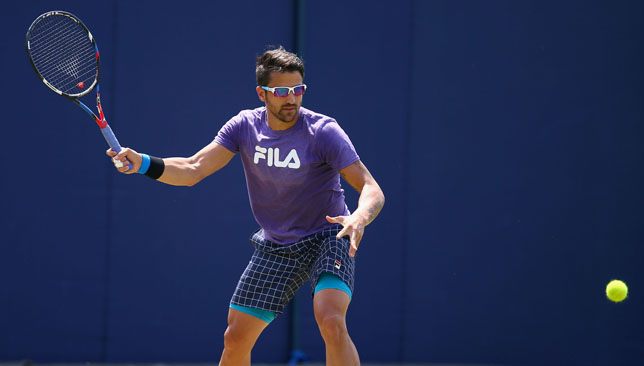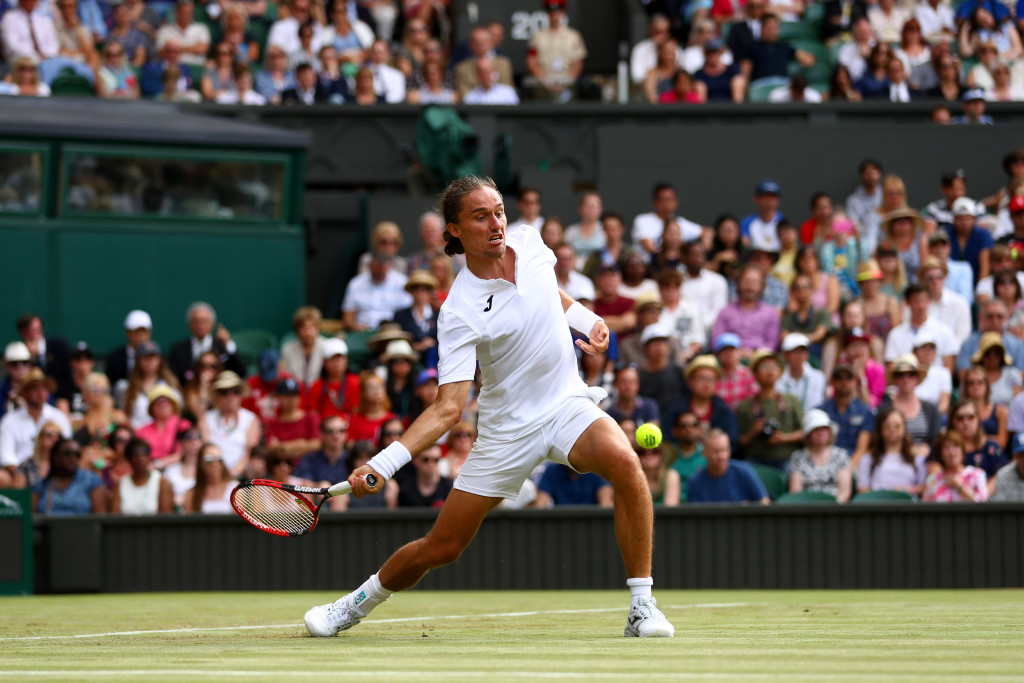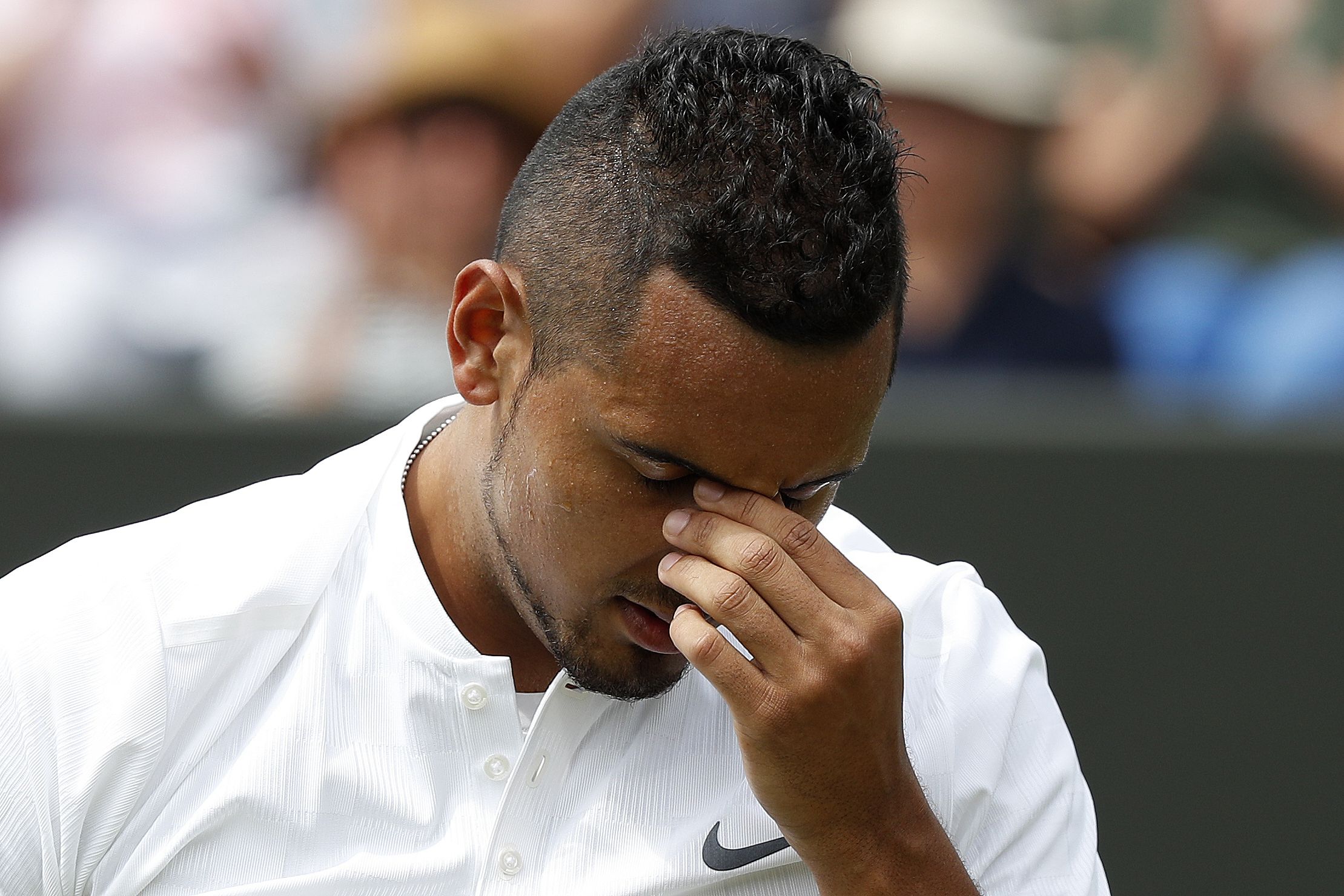
There have been eight first-round retirements (so far) at Wimbledon – seven on the men’s, one on the women’s – which naturally has brought up the topic of unfit players stepping on the court in poor physical condition, knowing they can’t compete, only to retire a few games into the match to pick up the £35,000 cheque.
Seven first-round retirements in the men’s draw is the joint-record at Wimbledon in the Open Era (2008), while the Grand Slam record for men’s first-round retirements is 10, which happened during the 2015 US Open.
Janko Tipsarevic lasted 15 minutes on court, retiring while down 0-5 to Jared Donaldson. Alexandr Dolgopolov retired while down 3-6, 0-3 against Roger Federer. Martin Klizan similarly went out in the previous match on Centre Court while down 3-6, 0-2 to Novak Djokovic.
Nick Kyrgios stopped his match after trailing Pierre-Hugues Herbert by two sets. Anastasia Potapova withdrew from her match against Tatjana Maria after falling and hurting her knee at 3-6, 2-2. Viktor Troicki’s opener pulled the plug on his match with Florian Mayer 17 minutes into the contest, down 1-6. Denis Istomin threw in the towel in the fourth set against Donald Young after taking the first one and dropping the following two. Feliciano Lopez retired in the fourth set against Adrian Mannarino.
Some of these examples include instances where players stepped on the court with a legitimate chance of making it through the match. Whether they were carrying previous injuries but were hoping they could win – as is the case of Kyrgios for example – or they sustained a physical problem during the first round.
But eight retirements in one round is not a small number and surely there must be incidents where players take to the court knowing they will pull out soon after.

Dolopolov retired after dropping the first set to Federer.
The increase in prize money for the early rounds at the Grand Slams has been a great move by tournaments, but it also means that £35,000 is too lucrative of an amount to pass on.
Those first-round retirements have two damaging consequences: They deny paying fans the chance to watch a full match – as was the case for Centre Court audience on Tuesday who witnessed back-to-back retirements against Djokovic and Federer – and they also deny lucky losers the opportunity to feature in the main draw.
The ATP has implemented an On-site Withdrawal/Lucky Loser Compensation rule this year that allows injured players to pull out of their matches before the first round while still receiving their prize money. The lucky loser wouldn’t get first-round prize money but if he wins, he would get the cheque for making the second round as well as ranking points of course.
Is it time the Grand Slams followed suit? Both Djokovic and Federer have backed this idea and Tipsarevic on Tuesday was quite articulate in his views on the matter, and how there is a real need for this rule at the majors.
Tipsarevic explained that he suffered a sharp pain three days ago in practice, that resembled a hamstring tear but that Wimbledon doctors – which he raves about – told him his leg was fine. The mysterious pain got better over the past three days but he felt it early in his match on Tuesday and had to stop.

“Knock on wood I’ve earned enough money that my life doesn’t depend on this cheque, so in my situation no. It would have been unfair if the doctor says you have a tear and then I just went on the court to take the first-round prize money, which is really really for someone else,” said Tipsarevic, who is a former top-10 player whose ranking plummeted due to a lengthy battle with injury.
“The prize money increase over the last few years has been significant. I’m trying to put myself in a position – not that I earned a lot of money but I played well over the last few years – and it’s a very simple example.
Janko Tipsarevic's reaction when he walked into a packed room of journos: Really? Did I do something wrong or something? 😂
— Reem Abulleil (@ReemAbulleil) July 4, 2017
“You have a lot of players here who fought their way to be in the Wimbledon main draw by playing Challengers. You pay your coach and all your supporting team I promise you one thing… I’m one of them. This year I made a huge jump from 600-whatever to 50-60 whatever my ranking is now mainly through Challengers.
“And because I invested in my team and everything I’m more or less breaking even half year.
“So if a guy is all his life is playing Challengers and suddenly has a chance to play Wimbledon main draw, where the first-round loss is £35,000, I don’t think anybody has the right to judge him, to say ‘you didn’t do the right thing, you’re unfair for going there and picking up a cheque’, because that same guy, probably next week, if he drops, he needs to pay a coach and all the other expenses to go to a Challenger where if he wins he gets €150 or €300.”
Tipsarevic, who boosted his ranking from 686 to his current position of 63 within 13 months by winning five Challenger titles in that period, feels for the lower-ranked players opting for prize money instead of pulling out of a Grand Slam. He explains how the paycheck from a Slam can make all the difference for some those players.

“It’s more or less of an overall yearly prize money. This is one of the problems in tennis because when people look at particular events and when you say you lost first or second round at a Grand Slam and the prize money is really big, and it should be even bigger,” says the 33-year-old Serb.
“Because if you look at the overall prize money of the year, in comparison to how expensive the sport is, and if you throw in the mix that the contracts of players, who are 150, 200, even 80, 90 (in the world) – trust me I have a managing agency, I know how much these guys get paid. It’s basically nothing. Whoever judges these guys is more unfair than going on a court and picking up the money on one leg.”
The ATP introduced their new rule just this season as a one-year trial and might be tweaked before it becomes permanent.
“I believe (the rule) should be (implemented in the Slams),” said Tipsarevic. “It should give a chance to the players that if they’re really injured that they pull out, they don’t risk.
“They have to come and do the paperwork and everything obviously, but they don’t risk their careers. Because to be honest even if I had a torn muscle today, and the doctor said you shouldn’t go on court, you have serious risk, I could have faked it, stayed there for two less games and still picked up the paycheck.
“You can give a chance for somebody else to play Roger Federer or Novak Djokovic or in my case Donaldson, and if he wins, he gets points and the second round prize money. It’s a win-win situation. I’m not blaming the ITF or the Grand Slams but I think the rule ATP introduced is really great.”